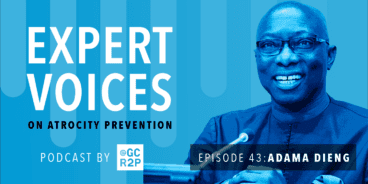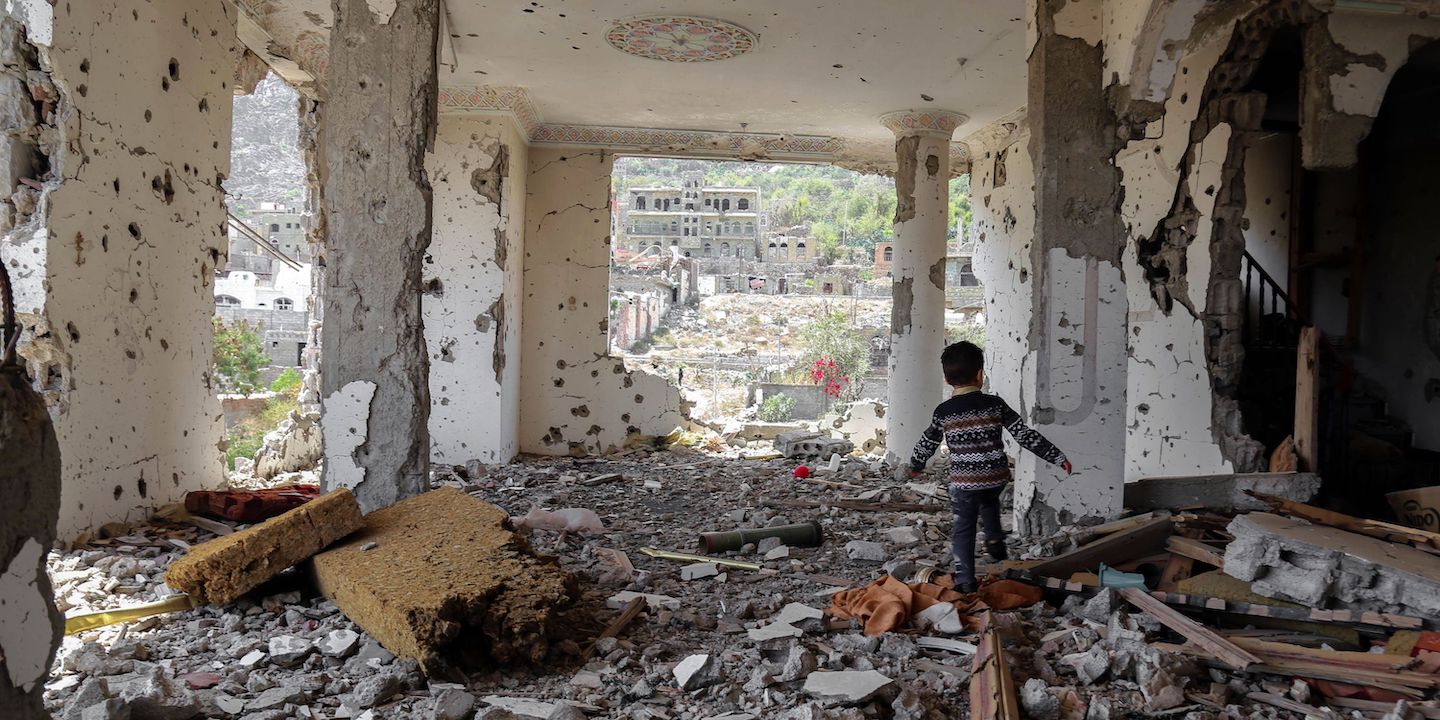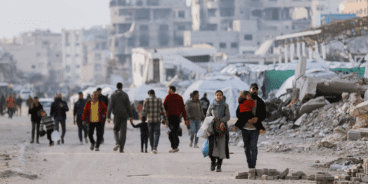

Atrocity Alert No. 196: Yemen, South Sudan and Mali
Atrocity Alert is a weekly publication by the Global Centre for the Responsibility to Protect highlighting situations where populations are at risk of, or are enduring, mass atrocity crimes.
Five years of war crimes have turned Yemen into world’s largest humanitarian crisis
Five years ago today, 25 March, a Saudi Arabia and United Arab Emirates (UAE)-led international military coalition intervened to support Yemen’s government in their war against Houthi rebels. Since then, over 12,000 civilians have been killed and at least 3.6 million displaced from their homes.
The UN-mandated Group of Eminent Experts on Yemen has found that all parties to the conflict have committed serious violations of international humanitarian and human rights law that may amount to war crimes and crimes against humanity. This includes the use of landmines in civilian areas, deliberate obstruction of humanitarian aid, enforced disappearances, rape, torture and the recruitment of child soldiers. Schools, medical facilities, markets and essential water and electrical infrastructure have also been systematically targeted by airstrikes and shelling.
The conflict has resulted in the world’s worst humanitarian crisis, with 80 percent of Yemenis requiring aid and assistance. It is estimated that tens of thousands of children have died of starvation while at least 14 million people remain at risk of famine. The crisis has also exacerbated the spread of disease, with Yemen suffering more than 1 million suspected cases of cholera since January 2018.
Although fighting in Yemen decreased after the 2018 Stockholm Agreement, violence has escalated since the end of January in Marib, Al Jawf and Sana’a governorates. The escalation began after the Houthis launched a missile attack on a mosque in Marib governorate on 20 January, killing 116 government troops. Increased fighting and airstrikes have caused more than 40,000 civilians to flee the region. Hostilities have also escalated in Taizz governorate where the largest public hospital, al Thawra, has been shelled.
Jahaan Pittalwala, MENA Region Analyst at the Global Centre for the Responsibility to Protect, warned that, “this latest escalation poses a grave threat to Yemeni civilians, as parties to the conflict have consistently shown brazen disregard for the laws of war and for human rights over the past five years.” The escalation also threatens to derail the tentative steps made towards a peace agreement in Yemen, including months of negotiations in Oman between Saudi Arabia and the Houthis. After five years of war, Yemen desperately needs an immediate country-wide ceasefire, protection of civilians, and an end to impunity for war crimes and crimes against humanity. Yemen cannot wait.
Recurring inter-communal violence threatens peace process in South Sudan
On 20 March the UN High Commissioner for Human Rights, Michelle Bachelet, expressed alarm over the recent escalation in inter-communal violence in South Sudan, urging the authorities “to curb the bloodshed and bring those responsible to justice.” Clashes between armed youths from the Lou Nuer, Dinka Bor and Murle communities have taken place since mid-February in parts of central and eastern South Sudan. Hundreds of people have reportedly been killed during battles stemming from disputes over cattle and access to water and grazing land. According to the UN, during the clashes over 200 women and children were allegedly abducted and subjected to sexual violence, while many homes were also burned and destroyed. An additional 41 people were reportedly killed in intra-communal fighting amongst members of the Dinka ethnic group in the Bahr el Ghazal region.
While there is a history of seasonal cattle raids and inter-communal violence between Nuer, Murle and Dinka communities, increased access to small arms and light weapons over the past decade has transformed some of these traditional conflicts and made them much deadlier. Recent disputes have also been exacerbated by resource pressures caused by flooding in Jonglei earlier this year and the decline of state authority during the 2013-2018 civil war. The UN has also found evidence that some recent clashes may have been instigated by local politicians and traditional leaders who are exploiting these tensions for their own ends.
While the formation of the Transitional Government of National Unity (TGoNU) on 22 February was an important political step towards peace in South Sudan, recurring inter-communal violence demonstrates that civilians continue to face the threat of mass atrocity crimes. Acknowledging the challenges faced by the new government, High Commissioner Bachelet emphasized that, “for any durable peace to take hold in the country, inter-communal violence must be addressed, and the perpetrators investigated and prosecuted.” The High Commissioner also called for increased peacebuilding efforts between rival communities.
Although the UN Mission in South Sudan deployed peacekeepers to some villages to protect civilians following the recent violence, the TGoNU must take urgent steps to expand state authority outside Juba and consistently protect all vulnerable populations. During May the UN Security Council should extend the arms embargo for South Sudan and help prevent arms proliferation from fueling further inter-communal violence.
Deadly ethnic violence continues in Mali one year after Ogossagou massacre
On 18 March the UN peacekeeping mission in Mali (MINUSMA) and the Office of the UN High Commissioner for Human Rights (OHCHR) released the conclusions from their investigation of a 14 February massacre in Ogossagou, a predominately ethnic Fulani village in the Mopti region of Mali. The report alleged that traditional hunters called “Dozos” – who come mainly from the ethnic Dogon community – planned and perpetrated the attack, killing at least 35 civilians. The attackers also looted or destroyed 136 properties, while at least 19 villagers remain missing. Malian soldiers who were deployed to Ogossagou had withdrawn from their post the night before and Dogon men reportedly diverted UN peacekeepers from the village an hour before the attack.
The massacre occurred less than a week before the anniversary of Mali’s worst atrocity in recent history, when more than 157 people were massacred by suspected Dozo fighters in Ogossagou on 23 March 2019. MINUSMA and OHCHR determined that both attacks may constitute crimes against humanity.
The Head of MINUSMA, Mahamat Saleh Annadif, stressed that “I am very concerned about the impunity enjoyed by the perpetrators of these acts.” According to witness testimony gathered by Human Rights Watch, some perpetrators participated in both attacks on Ogossagou. The precarious security situation and a chronic lack of judicial personnel hampers investigations into these atrocities and undermines domestic accountability mechanisms.
The two Ogossagou massacres are part of an ongoing pattern of deadly ethnically-motivated attacks across the Mopti region. While such attacks are perpetrated by rival armed groups, the victims are mainly unarmed civilians.
The Malian government must ensure that those responsible for inciting, directing and committing the massacres in Ogossagou and other attacks are held accountable. Mali’s government, with the support of MINUSMA, must increase its security presence in the Mopti region and strengthen its capacity to prevent future atrocities.
Related Content


Atrocity Alert No. 434: Sudan, Ethiopia and the UN Human Rights Council
